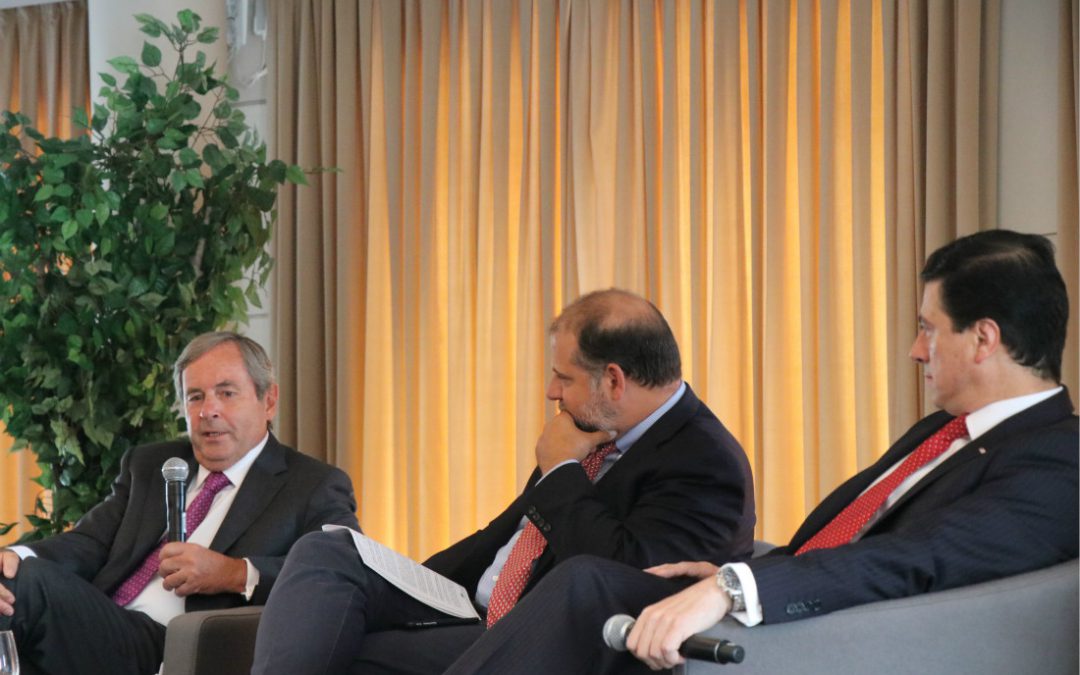WASHINGTON — Negotiations for a new version of the North American Free Trade Agreement should give President Donald Trump “a victory,” but not at the expense of Mexico and Canada, Canadian Ambassador David MacNaughton said Thursday.
MacNaughton, speaking at a forum sponsored by the Washington International Trade Association, acknowledged the necessity to revamp the 23-year-old accord given the transformation of businesses, but emphasized a successful revamp should be flexible and “do no harm.”
Mexican Ambassador Gerónimo Gutiérrez agreed, saying said Mexico has benefited tremendously from the three-nation trade pact and is looking for a “win-win-win” solution.
The Trump administration said Monday its top priority for the talks was to shrink the U.S. trade deficit with Mexico and Canada. U.S. Trade Representative Robert Lighthizer said he would work to reduce the trade imbalance by improving access for U.S. goods exported to Canada and Mexico.
Gutiérrez said the overarching objective would not be simply U.S. trade deficit reduction — the three governments are interested in creating more and better jobs.
“We have to move away from talking about the macroeconomic impacts of NAFTA, and emphasize the local impact on people,” said Gutiérrez. “We must listen to what people have to say. I think there are people in America who feel left out from benefits of Nafta.”
Gutiérrez noted that Mexico proposed an anticorruption addition to Nafta. The newly released U.S. objectives include renegotiating intellectual property rights, stricter labor laws, enhanced environmental laws and tougher rules on the origin of products.
The U.S. also reportedly wants to get rid of a system under Nafta that prevents the U.S. from pursuing anti-dumping and anti-subsidy cases against Mexico and Canada.
“It makes sense to have a dispute resolution mechanism,” said MacNaughton. “We have to find ways where President Trump can claim victory without it being a loss to Canada or Mexico.”
The first round of talks will take place Aug.16 to Aug.20 in Washington, Lighthizer’s office said in a statement Wednesday. Officials from the three countries plan to hold seven round of talks at three-week intervals to finish the Nafta renegotiation rapidly.
Lighthizer has said he hopes the negotiations could be wrapped up by the end of the year, which he called a “very, very quick” time frame, but added that “we’re not going to have a bad agreement to save time.”
When Nafta was created in 1994, the U.S. ran a small trade surplus with Mexico and Canada. In 2016, the United States had a nearly $11 billion trade deficit in goods with Canada and a $64 billion gap with Mexico.
Trump called the trade agreement “the worse trade deal maybe ever signed anywhere” and threatened to pull out if he can’t push the trilateral trade accord to the best interest of the U.S.
“I think people don’t understand how close we were [to withdrawal from Nafta],” said Gutiérrez. “Every political actor in the United States who understands the importance of Nafta needs to be vocal about it.”


